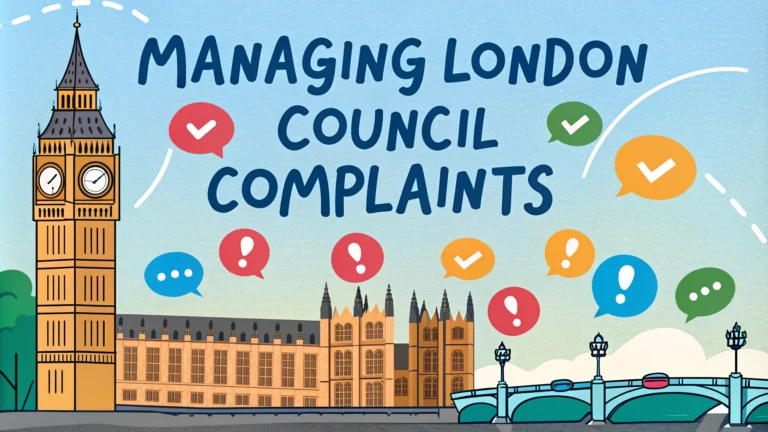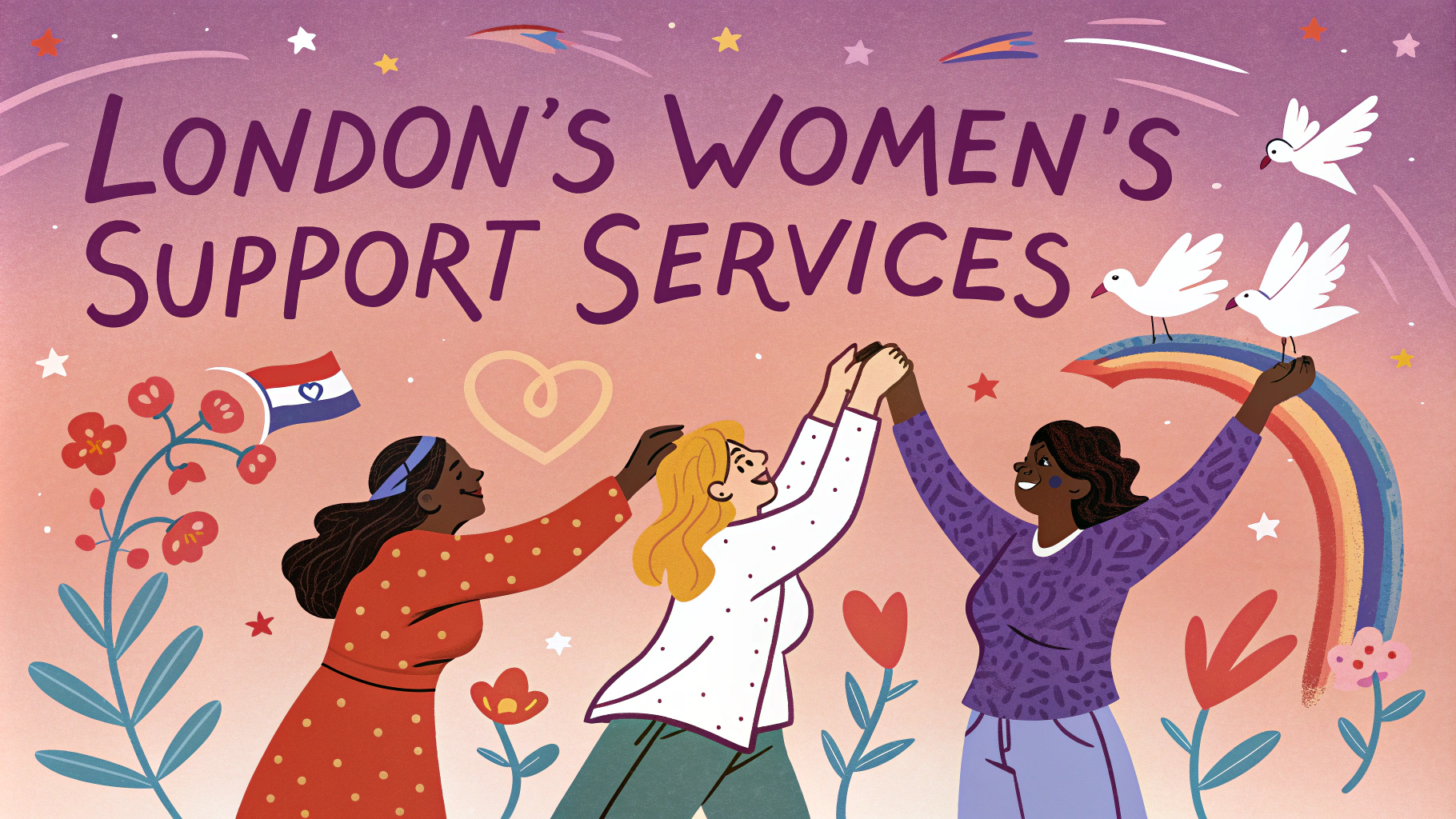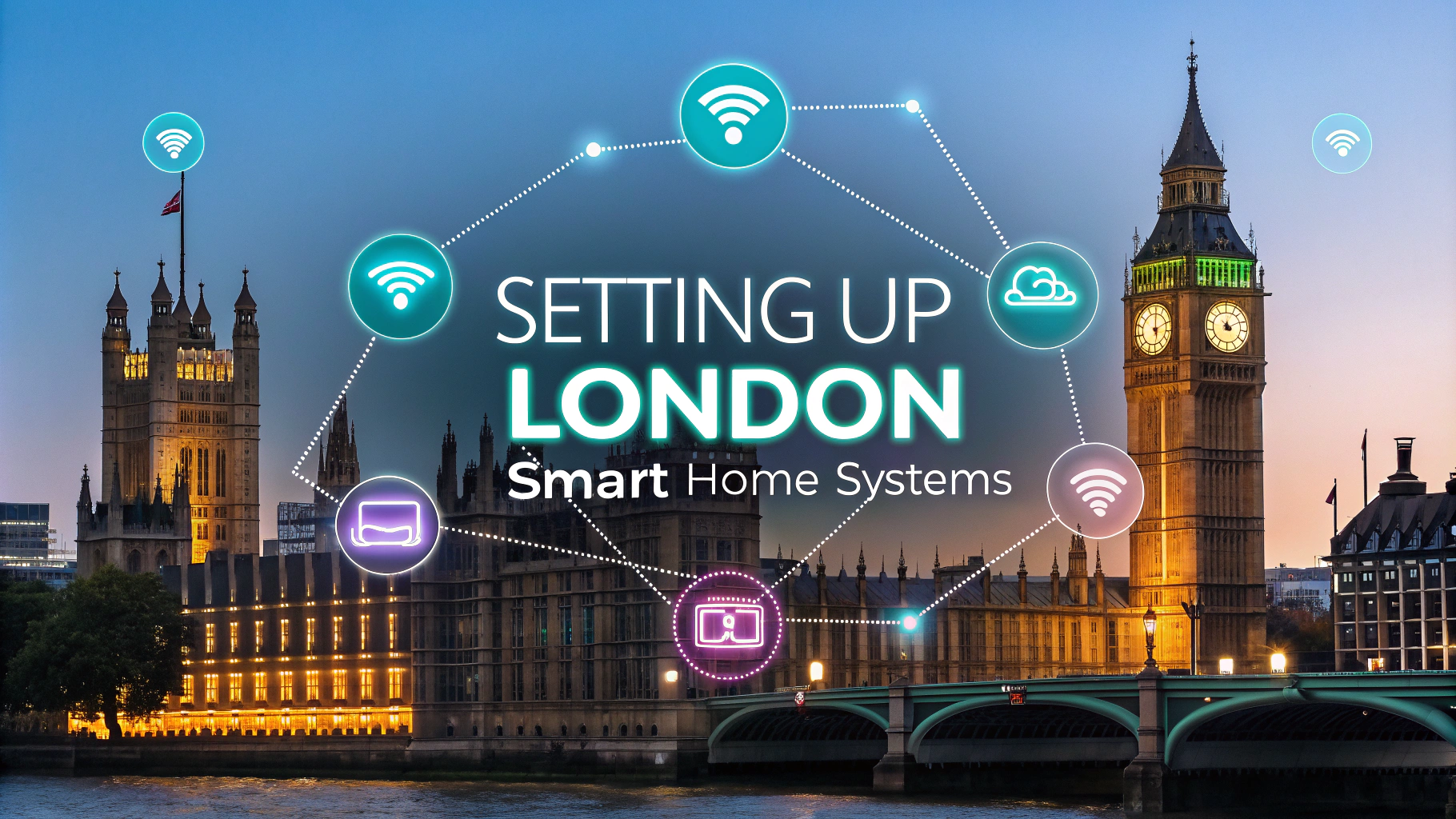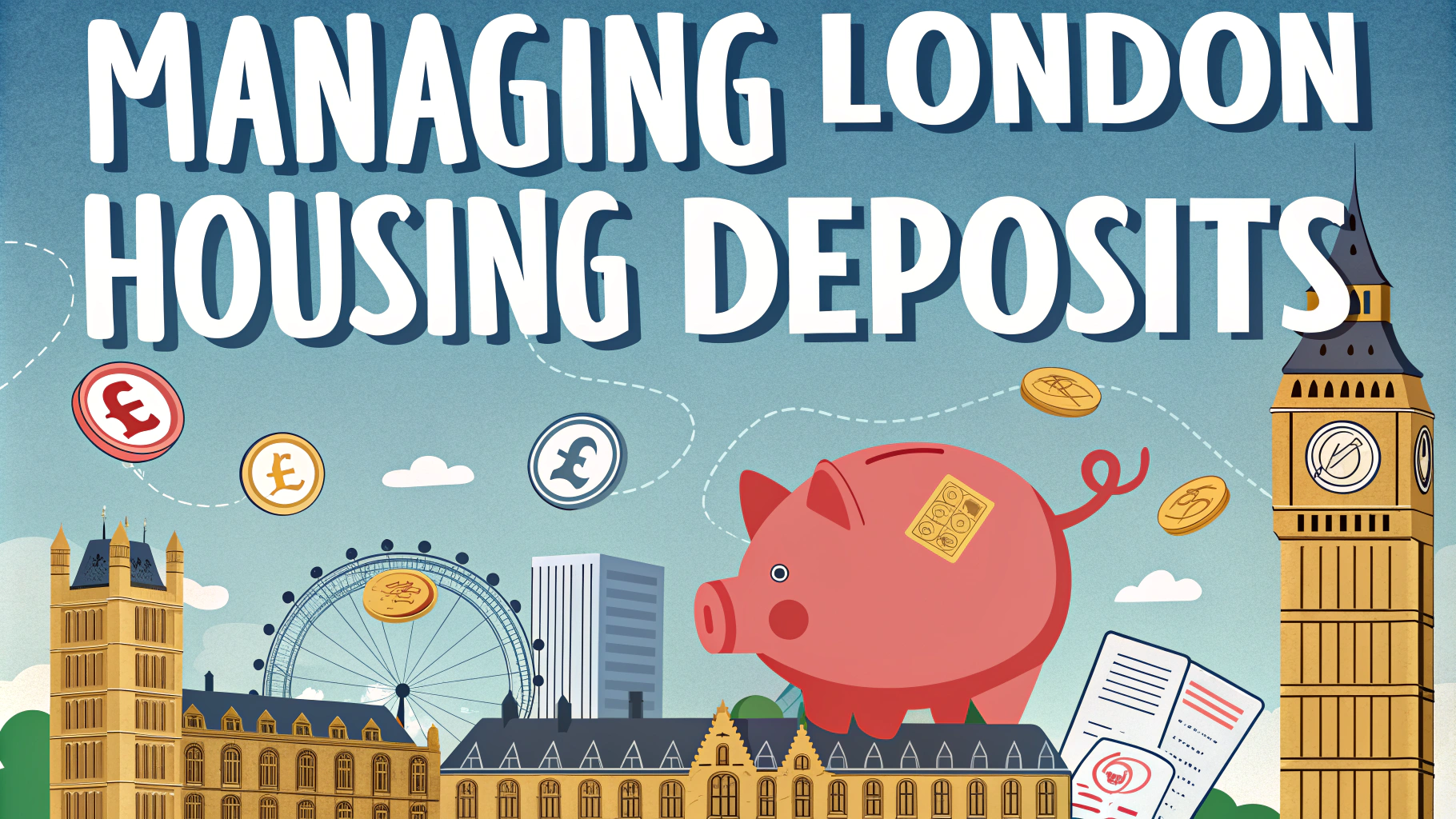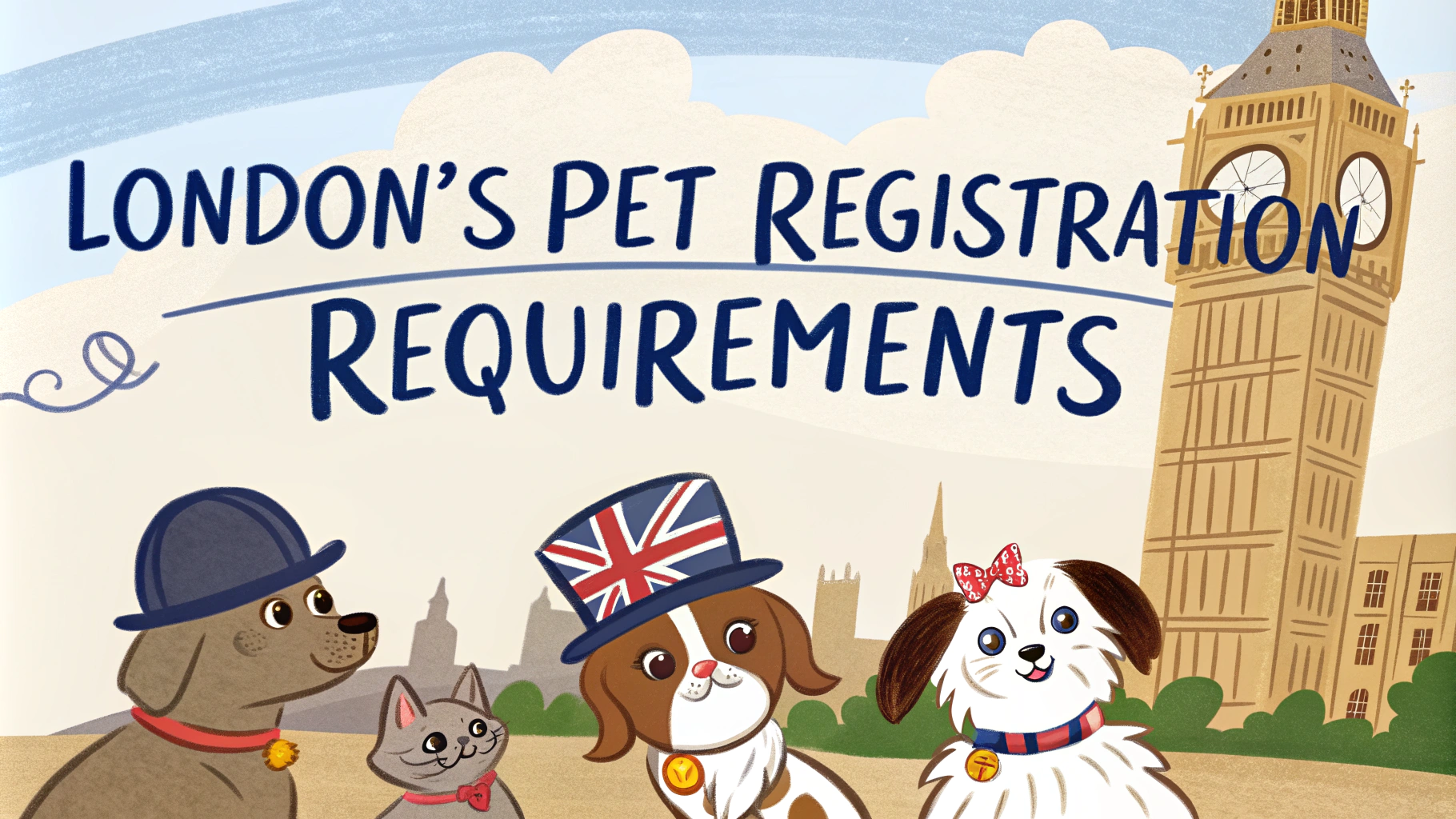Filing complaints with London councils requires understanding the specific procedures and channels available to residents.
Each borough maintains its own complaint handling system, though they follow similar general principles set by the Local Government and Social Care Ombudsman.
This quick guide outlines the steps to file complaints effectively, what to expect during the process, and how to escalate if needed.
Step-by-Step Complaint Process
- Contact your local council first through their website, phone, or email
- Provide specific details about your issue
- Keep records of all communications
- Note down reference numbers
- Take photos or gather evidence if applicable
Common Areas for Complaints
- Housing services
- Waste collection
- Noise issues
- Planning matters
- Council tax
- Parking services
Contact Methods
Most London councils offer multiple ways to submit complaints:
- Online forms on council websites
- Email to designated complaint addresses
- Phone calls to council contact centers
- Written letters to council offices
- In-person at council buildings
Response Timeframes
| Stage | Expected Response Time |
|---|---|
| Initial acknowledgment | 3-5 working days |
| Stage 1 response | 10-15 working days |
| Stage 2 review | 20 working days |
Escalation Process
If unsatisfied with the council’s response, follow these steps:
- Request a Stage 2 review within 28 days
- Contact your local councilor for support
- Approach the Local Government Ombudsman after exhausting council procedures
Tips for Effective Complaints
- Be clear and specific about the issue
- Include relevant dates and times
- Attach supporting evidence
- Explain what outcome you want
- Remain professional in communications
Useful Resources
Making Your Voice Heard
A well-structured complaint increases the chances of a satisfactory resolution.
Keep copies of all correspondence and follow up if response times exceed the stated periods.
Consider joining local resident groups or forums to share experiences and get advice from others who have gone through similar processes.
Special Circumstances
Some complaints may require special handling procedures:
- Safeguarding concerns are treated with high priority
- Multiple agency issues may need coordinated responses
- Complaints involving vulnerable residents receive additional support
- Emergency situations have expedited processes
Legal Considerations
- Statutory complaints have specific timeframes and procedures
- Some issues may require legal representation
- Data protection laws apply to complaint handling
- Certain matters may have appeal rights
Support Services
Available Assistance
- Translation services for non-English speakers
- Advocacy support for vulnerable residents
- Special arrangements for disabled access
- Help with form completion
Taking Action Beyond Complaints
Consider these additional steps for broader impact:
- Attend local council meetings
- Join community action groups
- Participate in public consultations
- Connect with resident associations
Making Your Voice Count
Effective complaint handling helps improve local services for everyone. Remember to:
- Stay informed about your rights
- Document everything thoroughly
- Be persistent but reasonable
- Share positive outcomes to help others
- Contribute to service improvement consultations
FAQs
- How do I file a complaint against my London council?
First contact your council directly through their complaints procedure. If unsatisfied with their response, you can escalate to the Local Government Ombudsman after 12 weeks. - What documents do I need to register with a London council when moving?
You need proof of identity (passport/driving license), proof of address (utility bill/tenancy agreement), and council tax information from your previous residence. - How long does the council complaint process typically take?
Councils should acknowledge complaints within 5 working days and provide a full response within 10-20 working days, depending on the complexity. - What are the most common grounds for council complaints in London?
Housing issues, waste collection, parking enforcement, noise complaints, and planning decisions are the most frequently reported issues. - Do I need to inform multiple London councils when moving between boroughs?
Yes, you must inform both your old and new council. You’ll need to close your council tax account with the old council and register with the new one. - What compensation can I receive for a successful council complaint?
Compensation varies by case but typically ranges from £100-£1000 for serious service failures. The amount depends on the level of inconvenience or loss suffered. - How do I notify council services when leaving London?
Contact your council’s housing department, council tax office, and electoral services. Provide your moving date and forwarding address at least one month before departure. - What happens if my council complaint is rejected?
If your complaint is rejected, you can escalate to the Local Government Ombudsman. You must have completed the council’s internal complaints procedure first. - How do I check which London council I fall under when moving?
Use the UK government’s official council finder tool by entering your new postcode on gov.uk website. - Can I make an anonymous complaint to a London council?
Yes, but anonymous complaints are harder to investigate and you won’t receive updates or confirmation of any actions taken.
